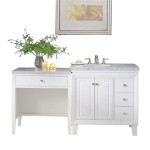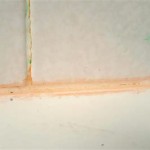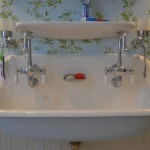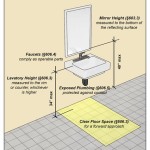Why Is There A Damp Smell In My Bathroom?
A musty, damp odor lingering in your bathroom can be a persistent annoyance. This unpleasant smell can stem from various sources and often signifies underlying issues that need addressing. Understanding the common culprits behind this persistent dampness can help you pinpoint the problem and take steps to eliminate it.
1. Inadequate Ventilation
A lack of adequate ventilation is the most common culprit behind bathroom dampness. Steam from showers and baths, coupled with the natural humidity generated from everyday use, can quickly saturate the air. If this moisture isn't effectively expelled, it condenses on surfaces, leading to dampness and a musty smell. Poor ventilation can result from several factors:
- Insufficient or malfunctioning exhaust fans: If your bathroom fan is weak, broken, or not running frequently enough, it cannot remove the moisture adequately.
- Closed windows or doors: Restricting air circulation prevents fresh air from entering and replacing the damp air.
- Lack of an exhaust fan: If your bathroom does not have an exhaust fan, it is crucial to explore adding one to improve ventilation.
2. Moisture Trapped in Materials
Materials within your bathroom can absorb and retain moisture, contributing to dampness and odor. Specific areas to pay attention to include:
- Shower curtains: Fabric shower curtains can become damp and mildew-prone, especially if they don't dry properly.
- Towels: Damp towels left in a pile or hung on a rack can create a breeding ground for bacteria and mold.
- Carpet or rugs: Bathroom carpets and rugs, especially those with thick pile, can trap moisture, leading to a musty smell.
- Caulking and grout: Cracks or gaps in caulking and grout around tubs, sinks, and showers can allow water to seep into walls and floors, creating a breeding ground for mold and mildew.
3. Leakage or Plumbing Issues
Leaking pipes or fixtures are a significant cause of bathroom dampness. Even seemingly minor leaks can lead to persistent moisture buildup, particularly if they go undetected for an extended period. The following areas should be thoroughly inspected:
- Showerheads: Leaking showerheads can continuously drip water, contributing to dampness.
- Faucet handles: Worn-out faucet handles can drip water, slowly adding to the moisture in the bathroom.
- Toilet tanks: A running toilet tank can waste water and generate excess moisture.
- Pipes: Leaking pipes behind walls or under floors can cause significant moisture buildup, leading to a foul smell and potential structural damage.
4. Mold and Mildew Growth
When excess moisture combines with warm, damp conditions, it creates an ideal environment for mold and mildew growth. These microorganisms thrive in enclosed spaces and can release a strong musty odor. Common areas where mold and mildew can develop include:
- Shower walls and ceilings: Areas prone to water spray and condensation are prime locations for mold and mildew growth.
- Underneath sinks: Leaks or spills under sinks can create dark, damp areas where mold can flourish.
- Behind toilet bowls: Areas behind toilet bowls can trap moisture and provide a breeding ground for mold.
Addressing the source of moisture is crucial for eliminating the musty odor. Regular cleaning with mold-killing products and proper ventilation can help prevent future growth. If mold growth is extensive, professional remediation may be necessary.

Bathroom Smells Musty Causes And Solutions

Moldy Smelling Water From Bathroom Faucet Hometalk

Why Does My Bathroom Smell Musty Hunker

Help My Bathroom Smells Musty What Should I Do Phyxter Home Services

Musty Smells In The House Finding Them And Getting Rid Of

How To Prevent Bathroom Mold From Taking Over Allergy Air

Why Is There A Bad Smell In My Bathroom M J Burt

Why Does My Shower Drain Smell Bad Kay Plumbing Heating And Cooling

What Is Causing The Musty Smell In My Bathroom

New Bathroom Smells Musty Causes And Solutions
Related Posts







